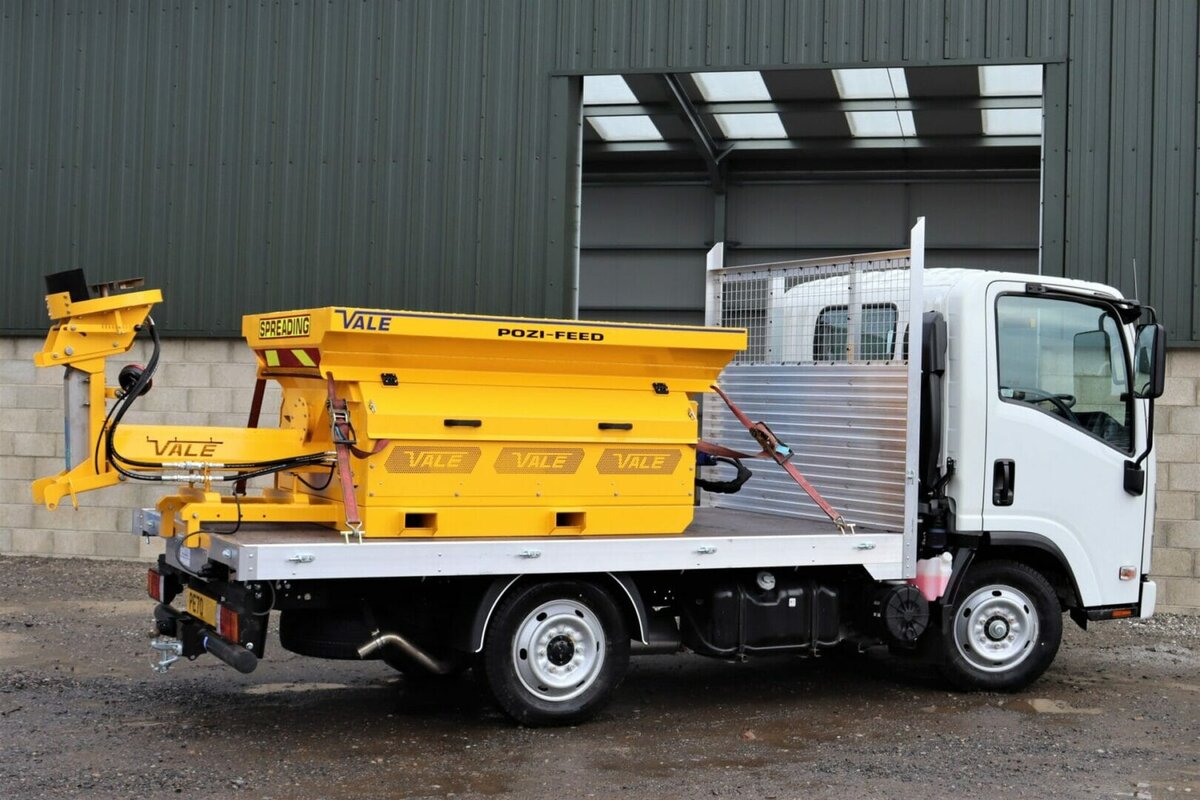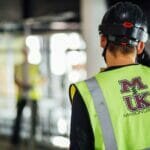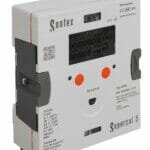For almost a year, the UK and EU have been getting to grips with the new trading relationship. From the Brexit vote until the end of the transition period on 31st December 2020, it had been ‘business as usual’ for machine builders – yet they had been left to speculate what would happen next.
The deal that was signed promised tariff-free, quota-free trade with, according to Prime Minister Boris Johnson, no non-tariff barriers. However, that last point seems to be more a matter of opinion than fact. UK machine builders continuing to export to the EU 27 member states are finding they need to do certain things differently, plus there are new requirements relating to customs declarations. Many commentators say these look distinctly like non-tariff barriers to trade.
Furthermore, machine builders in the UK also have to make some changes to continue serving customers in the home market! Let’s take a closer look at that first.
UK machine builders serving England, Scotland and Wales
We will discuss Northern Ireland later but, suffice to say, the Northern Ireland Protocol means that selling machines in Northern Ireland is now different from selling in England, Scotland and Wales, collectively referred to as Great Britain.
GB machine builders are already familiar with the CE marking process (or they certainly should be). CE marking continues for exports to EU 27 countries and later in this article we will discuss the small yet vital actions that need to be taken. Now the UK has left the EU, however, machines for the home market can no longer CE marked because CE marking is being replaced by UKCA (UK Conformity Assessed) marking. The process is all but identical so long as the UK’s Supply of Machinery (Safety) Regulations remain aligned with the European Machinery Directive. Nevertheless, there are some changes to documentation and machine marking.
The most obvious change is that machines need to have a UKCA mark applied instead of a CE mark. Both the HSE (Health and Safety Executive) and BEIS (Department for Business, Energy and Industrial Strategy) advised last year that, for the time being, CE labelling will continue to be accepted for products that have already been assessed and CE marked prior to 31st December 2020. The UKCA mark can be applied to accompanying documentation only until 1 January 2023 if preferred but, after that date, the UKCA mark must be displayed on both the documentation and the product itself. We are not aware of anything in the trade agreement that countermands this advice.
Changes to the documentation should not be too onerous. As we have already said, the documentation now needs to show the machine as being UKCA marked instead of CE marked. In addition, where a Declaration of Conformity (DoC) or Declaration of Incorporation (DoI) previously referred to harmonised standards with EN prefixes, they now need to refer to designated standards and all standard numbers should be prefixed with BS to indicate they are British Standards.
When preparing a DoC or DoI under the CE marking regime, the declaration requires a person established in the EEA (European Economic Area) to be named as authorised to compile the technical file. For UKCA marking there is no such requirement and it would appear that the authorised person can be anywhere in the world. For GB machine builders supplying the home market, this difference will probably be immaterial. Similarly, the requirement for the technical file to be in English will not bother machine builders in Great Britain.
For Annex IV machinery, where CE marking requires a Notified Body to undertake the conformity assessment, the relevant bodies in the UK are now termed UK Market Conformity Assessment Bodies (UKMCABs). Most UK Notified Bodies have been converted to Approved Bodies but machine builders should check this with their Notified/Approved Body and make sure the documentation is being updated accordingly.
UK machine builders serving Northern Ireland
The Northern Ireland Protocol has been in place since 1st January 2021. This permits free trade between Northern Ireland and the Republic of Ireland for most manufactured products. It also ensures unfettered access to Great Britain for manufacturers in Northern Ireland. Because of the need for free trade across the Irish border, Northern Ireland is largely aligning with European rules rather than GB regulations when it comes to placing manufactured goods on the market.
Machine builders in Northern Ireland can therefore continue to CE mark machines and sell them in Northern Ireland, the EU 27 member states and, thanks to unfettered access, Great Britain.
Machines manufactured in GB for sale in Northern Ireland must be CE marked (see the section on exporting to Europe). Note that UKCA marking is not accepted in Northern Ireland.
If Annex IV machines are conformity assessed by a UK Approved Body, then the machine must display both the CE and UKNI mark (not the UNKI mark on its own). UK Approved Bodies can continue to act as Notified Bodies for products being CE/UKNI marked for Northern Ireland.
UK machine builders exporting to Europe
As well as the EU 27 member states, the new trade deal effectively includes Iceland, Liechtenstein and Norway (members of the European Free Trade Association, EFTA), plus Switzerland, which has a Mutual Recognition Agreement (MRA) with the EU. In addition, Turkey, Andorra and San Marino have Customs Union Agreements with the EU. Northern Ireland can also be treated the same way by GB machine builders, thanks to the Northern Ireland Protocol mentioned earlier.
CE marking of machines destined for these markets continues almost exactly as before. The vital difference is that it is no longer acceptable to name a person in the UK as being authorised to compile the technical file. This is because the UK is no longer in the EU. The person named on the DoC or DoI must be established in the EEA (European Economic Area) and can be a person or a business.
GB machine builders may have a subsidiary, distributor or representative willing to undertake this role but, if these options are not available, then a simple, quick and cost-effective option is the service provided by Hold Tech Files Ltd, based in the Republic of Ireland.
Hold Tech Files has created a web-based service for manufacturers of machines, partly completed machines and safety components covered by the Machinery Directive. After signing a mandate and paying a fee, the relevant file can be uploaded to a secure server. Payment of a one-off fee entitles the manufacturer to name Hold Tech Files on the DoC or DoI for a period of ten years. All fees are published on the website and there are no ‘hidden extras’.
Where Annex IV machinery has previously been conformity assessed by a Notified Body based in the UK, the EU is no longer recognising these EC type-examination certificates. In most cases UK Notified Bodies have already transferred accreditations to other EU-based Notified Bodies. Machine builders should satisfy themselves that this has been done or, if not, obtain certification from an EU Notified Body as a matter of urgency.
The points outlined above are very important for UK machine builders exporting to the EU. Because there are no ‘CE police’, some machine builders have previously taken the view that a minor non-compliance with the CE marking process would be unlikely to cause a problem. Now, however, incorrect documentation could easily result in machines, partly-completed machines and machine safety components being held up at customs and failing to reach customers on time.
Rules of origin
Aside from the technical aspects of CE marking, UK-based machine builders exporting to the EU now need to consider the complex rules of origin. This relates to customs declarations and is outside the scope of this present article. Nevertheless, it would be remiss not to draw machine builders’ attention to the need for them to address this issue as well.
Regulation 2019/1020
European Regulation 2019/1020 on market surveillance and compliance of products came into force on 16th July 2021. The aim is to strengthen the requirements for market surveillance by Member States but there are important implications for machine builders.
The new regulation introduces requirements relating to an ‘economic operator’ and machines cannot be placed on the market unless there is an economic operator established in the EU.
In addition to acting as the person authorised to compile Technical Files, Hold Tech Files can also act as the Authorised Representative to enable UK machine builders to comply with the need for an EU-based economic operator.
For more information about how Hold Tech Files can act as the person authorised to compile Technical Files for the Machinery Directive and the Authorised Representative with respect to Regulation 2019/1020, go to www.holdtechfiles.eu or email [email protected]








